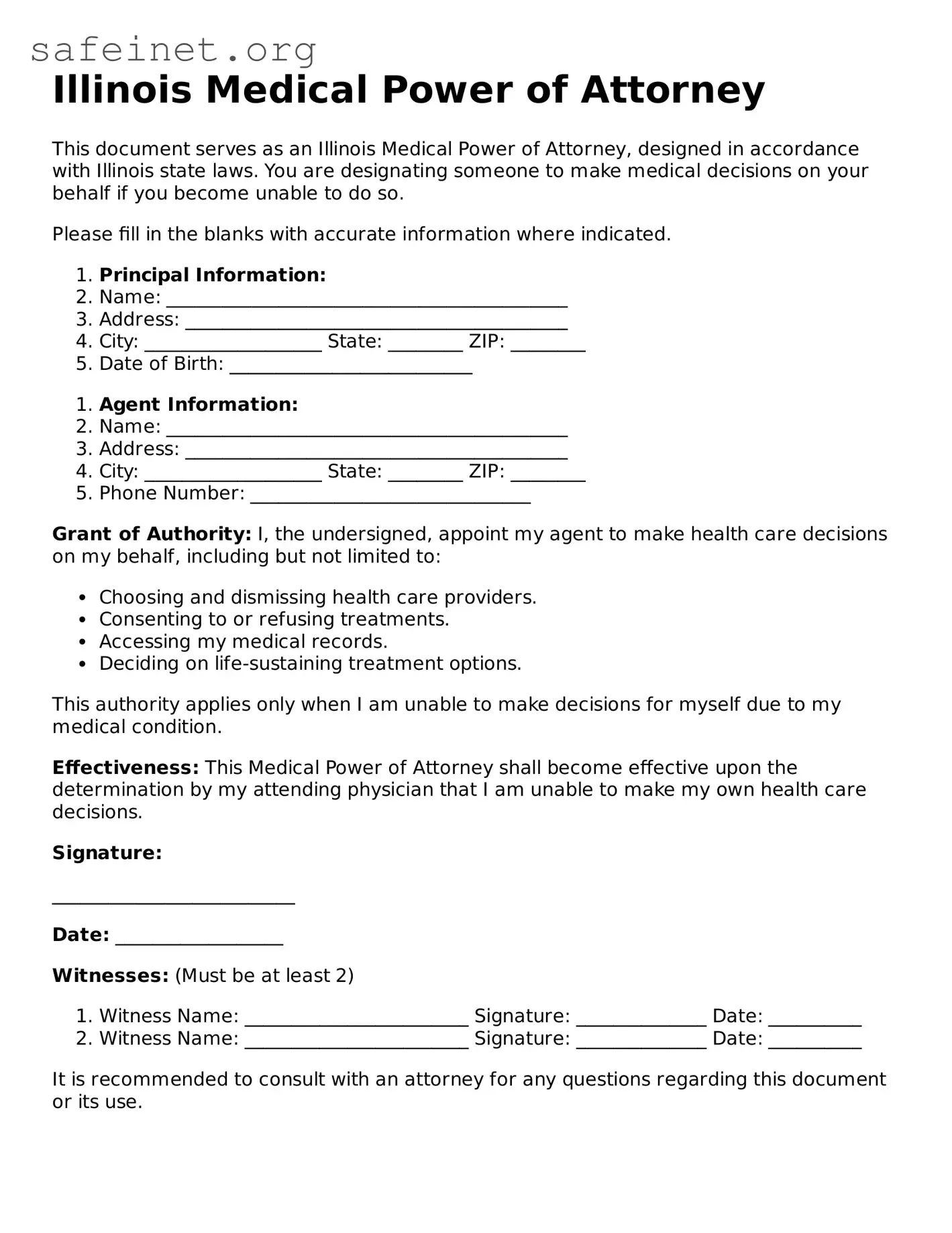What is an Illinois Medical Power of Attorney form?
The Illinois Medical Power of Attorney form is a legal document that allows you to designate a trusted individual—referred to as your agent—to make medical decisions on your behalf if you become unable to do so yourself. This can happen due to illness, injury, or any other circumstance that affects your ability to communicate or make informed choices about your healthcare.
Who can be my agent?
Your agent can be anyone you trust to make healthcare decisions for you. This person should be over the age of 18 and should understand your values and preferences regarding medical treatment. It is common for individuals to choose family members, close friends, or a trusted healthcare advocate as their agent.
How do I complete the Illinois Medical Power of Attorney form?
Completing the form is a straightforward process. First, you will need to fill in your personal information, including your name and address. After that, you will designate your agent and any alternate agents. You must then sign the form in the presence of a witness or a notary public, as required by Illinois law to ensure its validity.
Do I need a lawyer to create a Medical Power of Attorney?
No, you do not need a lawyer to complete a Medical Power of Attorney form in Illinois. However, consulting with an attorney may be beneficial to ensure your document meets specific needs and state requirements, especially if your situation is complex.
Can I revoke my Medical Power of Attorney?
Yes, you have the right to revoke your Medical Power of Attorney at any time as long as you are competent to do so. To revoke the document, you may need to create a new form or provide a written notice to your agent and any healthcare providers or institutions that have the original document on file.
What happens if I do not have a Medical Power of Attorney?
If you do not have a Medical Power of Attorney and become unable to make medical decisions, the healthcare providers may turn to your family members or guardians to determine your wishes. This can sometimes lead to confusion, disputes, or decisions that do not align with your personal values.
Is there a difference between a Medical Power of Attorney and a Living Will?
Yes, there is a significant difference. A Medical Power of Attorney grants someone authority to make medical decisions for you, while a Living Will specifies your wishes regarding end-of-life care and treatment preferences. Both documents are important but serve different purposes in healthcare planning.
Can I change my agent after I have filled out the form?
Absolutely. If you decide you want to change your agent, you can do so by revoking the previous Medical Power of Attorney and creating a new form that appoints a different agent. It's essential to notify the former agent and healthcare providers if you make this change.
Where should I keep my Medical Power of Attorney document?
It is best to keep your Medical Power of Attorney document in a safe but accessible place. You should provide copies to your agent and any relevant healthcare providers to ensure they are informed of your wishes and can act on your behalf when needed. Additionally, consider giving copies to family members for their records.
